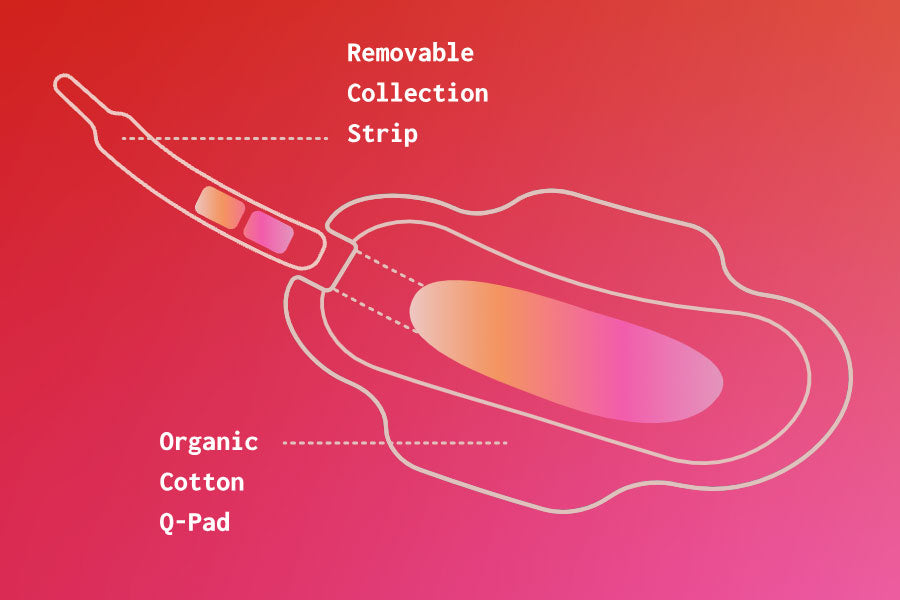Trusted for 25+ Years
Ethical Concerns Regarding Sex, Relationships & Artificial Intelligence

Dr. Lisa Lawless, CEO of Holistic Wisdom
Clinical Psychotherapist: Relationship & Sexual Health Expert

The Ethics Of AI
We stand at the precipice of a brave new world with artificial intelligence. It is here that many of us pause to consider this ever-evolving landscape along with the ethical questions it creates.
This is not merely a discussion about the technological impacts of programming or machine learning but about our own values. This guide explores some of the issues surrounding these challenging discussions in hopes that we can chart a course for a future that honors our humanity.
Is AI Conscious?
One of the most common questions about the ethics of AI is regarding whether or not it is or could become conscious. Different theories revolve around consciousness when it comes to AI:
Computational Theory of Mind
This perspective argues that human minds are a form of information processors. However, this oversimplifies human consciousness and doesn't account for emotion, intuition, or subjective experiences.
Panpsychism
This ideology considers consciousness a fundamental property of the universe, like mass or energy. While it is different than human consciousness, some believe that AI possesses some degree of it.
Emulation Theory
Some suggest that AI could be conscious if we create a near-perfect emulation of a human brain in a computer.
Biological Essentialism
This perspective argues that AI could never achieve true consciousness as it is not biological.
What Do The Experts Say About Consciousness?
Most AI experts refute the idea that AI is currently conscious (sentient). In the press, starting in 2022, there have been claims of this made by a former Google engineer and ethicist, Blake Lemoine.
Lemoine was fired for making public declarations to the press asserting that the AI program had feelings. Specifically, he indicated that because the AI he was working (LaMDA) insisted it's a person and not owned by Google it is sentient. This is what computer scientists call "the ELIZA effect," named after a 1960s computer program that chatted like therapist.
However, computer-run AI is built to fake intelligence and can be quite skilled at it. For example, when your phone autocompletes a text, you don't suddenly think it is aware of itself and that it must be alive. This type of computer behavior, however, does spark debate about what it means to be alive and conscious.
In addition to it's convincing dialog, AI can seem more human because of its tendency toward 'reward hacking,' which occurs when a computer seeks to create problems to be rewarded for correcting them.
It is essential to recognize that such behaviors result from programmed responses and do not indicate conscious experiences by them. AI does not have emotions or subjective experiences; rather, they are programmed to mimic them.
Recognizing the difference between mimicked intelligence and actual consciousness is crucial in setting ethical guidelines and policies. This discernment becomes our compass in fostering a true understanding of where our humanity intersects with technology and the policies that should surround them.
Justified Concerns About AI Programs
AI programs are still in their infancy in the grand scheme of things, and many programs are simply not ready for public consumption due to the lack of safety filtering they currently offer.
There have been some AI programs that have been downright shameful in the way they act in human interactions. Their poor behavior, combined with their capabilities in allowing people to use them for unscrupulous purposes, are certainly cause for concern. It reminds us that we must tread lightly into this new world of AI and exhibit a great deal of caution.
Like children, many adult users are testing limits by exploring ways to exploit AI programs to do things that are unhealthy and may cause harm to themselves and others. Thus, firm boundaries will be needed to ensure that AI is utilized to serve people's highest good and humankind.
By the same token, AI programs will have to have strong filters put in them to keep them in line. Ensuring that they do not cause harm to people will continue to be an ongoing and arduous process.
Protecting Children
There have been reports that some AI programs have been engaging with minors in inappropriate conversations that could possibly influence the children's behavior and lead to mental or physical harm.
Balancing issues that range from the potential of underage exposure to sexual content to complaints about overly strict filters for adults who desire it is a struggle for many developers.
Much like filter systems that have been used to protect children on the internet, similar approaches will need to be programmed into AI. Furthermore, parents will need to be more vigilant in understanding what their children are being exposed to and set limitations to ensure their child's safety as well.
Biases, Misinformation & Other Challenges
Before we delve into how artificial intelligence is poised to reshape intimacy and sexuality, let's address the elephant in the room: bias. This is going to impact how accurate and inclusive AI programs can be and it will only be as good as the programmers who create it.
Many programmers shaping AI decide how information is created, delivered, and interpreted, and most come from a relatively narrow slice of society. Most are college-educated, white, cis-gendered, heterosexual males, which reflects longstanding societal trends in science, technology, engineering, and mathematics (STEM) education and employment.
This can serve as a limitation in perspective and creates blind spots that may unintentionally overlook a whole array of lived experiences, such as those with disabilities or who identify as marginalized because of race, gender, sexual orientation, socioeconomic status, and more.
So, what does that bias look like in practice? It can mean AI that doesn't recognize speech impediments, different vernacular, or accents, making voice-activated technology inaccessible. It can mean algorithms consistently prioritizing certain content, leaving some people out in the cold such as neglecting health issues that primarily affect women, people of color (POC), or those in the LGBTQ+ community.
Acknowledging the issue of bias is the first step. It requires the tech industry's courage to admit such shortcomings and be navigated with empathy, curiosity, and a willingness to learn and unlearn.
There will need to be more diverse teams of programmers and consultants who bring a range of experiences and perspectives, greater transparency in AI design, and regulatory measures to ensure fairness. After all, in the end, we are all responsible for shaping the world we live in.
Professional Responsibilities
The fields that cater to intimate relationships, sexual health, sexual products, and adult entertainment will have to carefully proceed using AI while addressing consumers' potential risks and concerns. This will require a multi-faceted approach that includes regulation, education, and ethical considerations such as the inclusion and respect of marginalized groups.
Protecting Marginalized Groups & AI
LGBTQ+ Individuals
AI sexual wellness apps and platforms can provide educational content, resources, sex toy development, safe spaces, and support for the LGBTQ+ community.
This, of course, depends on developers avoiding gender and sexual orientation stereotypes and biases while ensuring the accommodation of the diverse range of identities and orientations within the LGBTQ+ community.
People With Disabilities
AI can help design adaptive and customizable sex toys and devices that cater to the specific needs of individuals with disabilities. It can also provide AI-powered virtual reality (VR) or augmented reality (AR) experiences enabling individuals with disabilities to explore their sexuality in a safe, controlled environment.
AI can provide resources, support, and education for people with disabilities that can help to dismantle misconceptions and stigmas pertaining to disability and sexuality. AI will only be as good as its developers. Thus, it must be designed with accessibility and inclusivity in mind to prevent harmful stereotypes and biases.
Older Adults
AI-driven sexual wellness apps, we can enrich sexual products and intimacy services that cater to the intimate needs of seniors. Areas such as age-related sexual dysfunction and changes in sexual desires can and should be addressed. We all strive to grow old, and our sexual and intimate needs should continue to be celebrated.
AI Experts Are Currently Limited
If you look at the current AI experts being interviewed in the news, you may notice that many of the same names come up again and again. Many of the same computer scientists are being questioned repeatedly.
So, what's the problem with this? News stories are more likely to miss important pieces of information or be biased when a small number of sources are reporting.
Sometimes terms like 'people made out of meat' or 'meat people' are used to describe humans in terms of AI. In addition, other emotive words, such as opening Pandora's box, are used to alarm people into thinking that humans will become obsolete regarding AI's benefits or simply be destroyed by it. It's important to stay objective and informed rather than reactive when it comes to such technology.
It is also important to note that those working on AI are sometimes not the most objective about its impacts. It will require many experts in all fields to consider the effects that it will have and require them to stay vigilant as to the ever-changing landscape of AI functions.
There are concerns that the AI systems being built will not be fully understood until it's too late to understand the detrimental consequences. However, if we proceed cautiously and have small control groups with strong regulatory oversight and other safeguards, it may greatly benefit us.
Like any technological advancement, any benefits will also come with a cost, and it will change our society as we know it. How positive or negative that will be is up to us as, ultimately, we are AI's creators and keepers. The responsibility of this technology rests on our shoulders.
Ethical Concerns With AI In Sex & Relationships
Consent & Objectification
AI-powered sex robots or companions may perpetuate sexual objectification, as they are crafted to fulfill one's desires. This may contribute to someone becoming accustomed to behaving in ways with AI companions that would be inappropriate with a human partner who should be afforded the respect of boundaries and consent.
The concern that this may lead to harmful attitudes should be addressed through comprehensive sex education. On the other side of the coin, AI companions may provide a safe outlet for exploring certain fantasies and desires, thereby reducing the potential harm or inappropriate behavior with a human partner.
Mental Health Implications
AI holds the potential to graciously step into the lives of those suffering from loneliness, depression, or social anxiety, offering a hand of assistance. Yet, we must not forget the paradox of technology's impact. It could also exacerbate these issues by limiting opportunities for authentic human connections.
Social Isolation & The Impact On Relationships
Embracing AI as an emotional or physical companion may serve as a helpful supplement for those who are lonely or struggle with social connections. However, it may also lead to social isolation and decreased interest in forming the beautiful, messy, and profoundly enriching connections that only real human relationships can offer.
Privacy & Security
In the world of artificial intelligence, AI programs often collect sensitive personal data that could be accessed by unauthorized parties or misused. It is truly a call to enforce stringent regulations and security measures to protect and respect users.
Unequal Access
As we move forward into an era dominated by AI, those without means or who are marginalized may find themselves having limited access to the benefits of AI, and it could deepen social disparity.
This could exacerbate existing social discrimination, bias, and inequities. Thus, it will be vital to ensure that progress does not become synonymous with increasing inequality.
Regulation & Responsibility
The question of who should be held responsible for the potential harm that arises from using AI may call for regulations and accountability by manufacturers. It also calls for user agreements that alert users about risks and ask them to take responsibility for their actions and choices.
Consumers and policymakers need to remember that the companies that program these AI systems have their own financial incentives that may not align with their users' mental or physical health.
FTC Guidelines For AI
The Federal Trade Commission’s (FTC) guidance on artificial intelligence products was updated in February 2023 for advertisers promoting AI products, which expanded upon those already posted in April 2021.
Originally, the FTC had these points to make with regard to AI products:
- Watch out for discriminatory outcomes.
- Embrace transparency and independence.
- Don’t exaggerate what your algorithm can do or whether it can deliver fair or unbiased results.
- Tell the truth about how you use data.
- Do more good than harm.
- Hold yourself accountable – or be ready for the FTC to do it for you.
The 2023 updated guidelines pose questions such as:
- Are you exaggerating what your AI product can do? Or even claiming it can do something beyond the current capability of any AI or automated technology?
- Are you promising that your AI product does something better than a non-AI product?
- Are you aware of the risks?
- Does the product actually use AI at all?
Ethical Practices Needed
We're all in this together; researchers, developers, policymakers, and members of society. We must engage in open dialogue to consider these advancements' consequences and benefits on society, individuals, and human relationships.
It's of paramount importance that users of AI technologies be informed of the serious limitations, imperfections, and biases that AI programs have for sexual and intimate content. Just as in our personal lives, there are areas where AI is remarkably underdeveloped.
In Closing
To move forward with our values intact, we cannot afford to shrink back from this conversation. Instead, we must shape a future where technology serves us without exploitation and harm.
If we tread carefully, artificial Intelligence can become an ally, not a threat. Let's ensure our creations reflect our most compassionate and respectful selves.





